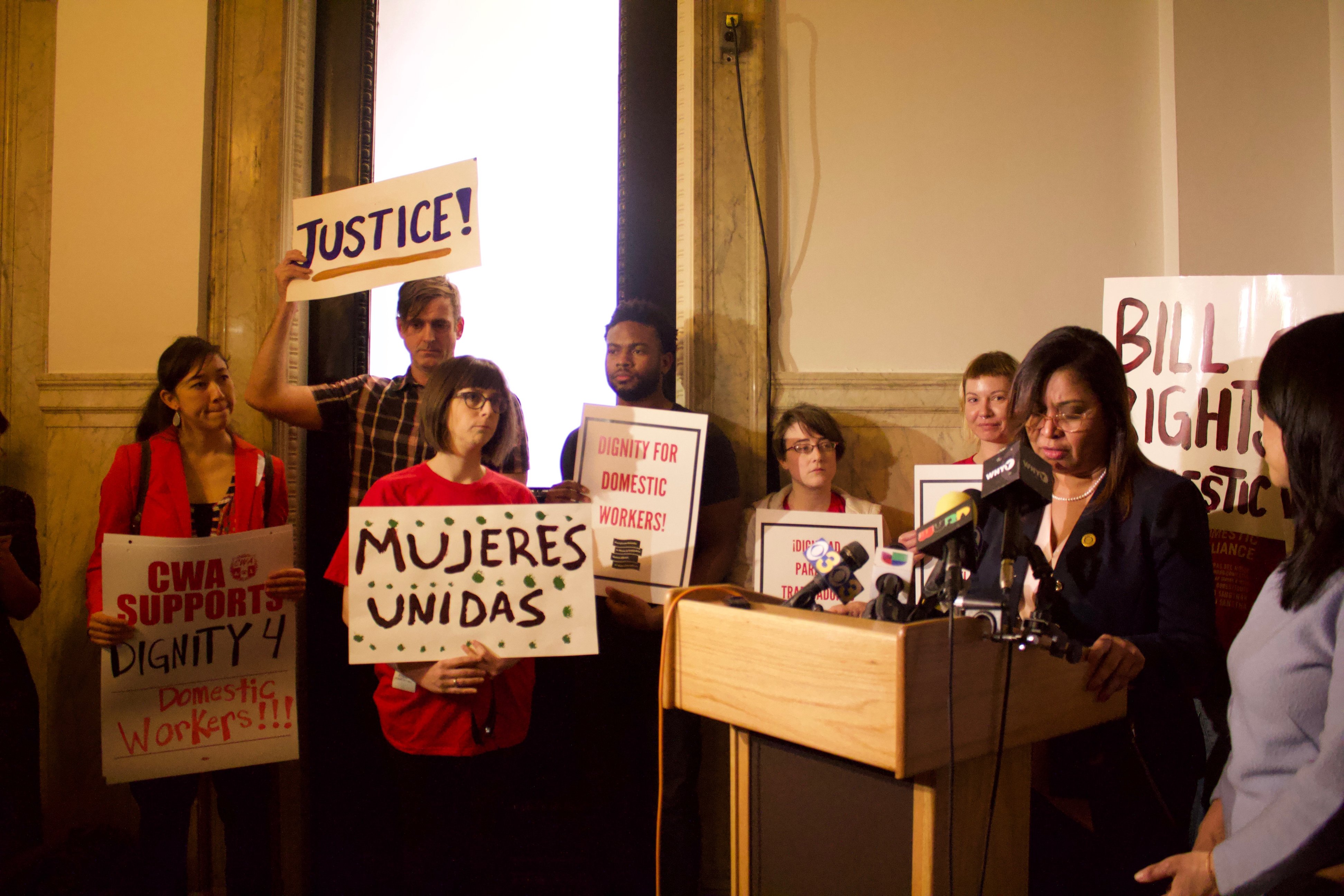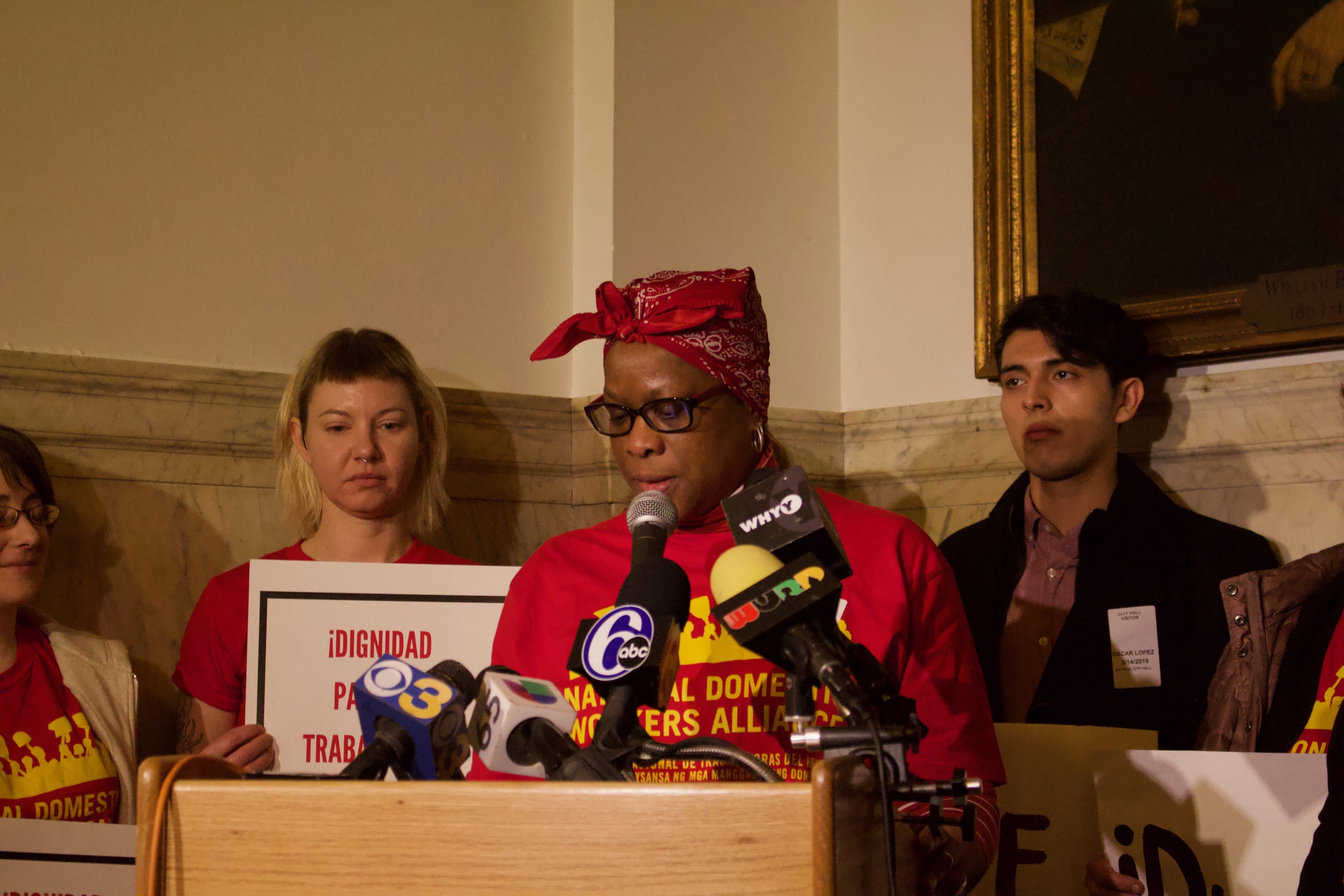
Philadelphia City Council to hold hearings on Domestic Worker Bill of Rights
On Thursday, Mar. 14, City Council representatives announced that they will hold hearings and explore legislation to protect the estimated 16,000 domestic workers in Philadelphia, with the goal of passing a bill by June of this year.
The Pennsylvania Domestic Workers Alliance, the women representatives of City Council, led by Councilwoman María Quiñones-Sánchez, and supporters made the case for a Philadelphia Domestic Worker Bill of Rights, which would extend workers rights already afforded to the majority of professions in the city’s labor force to nannies, caretakers, house cleaners, and others who work in homes across the city.
“As domestic workers, we don’t have any rights, we don’t get any benefits, we don’t receive any overtime,” said Lucy, an immigrant from Mexico who has worked as a caretaker for the elderly in Philadelphia for 10 years, at the press conference on Thursday.
“I’m supporting the Pennsylvania Domestic Workers Alliance because not all women have the fortune of being treated well at work,” she added.
Quiñones-Sánchez, a principal sponsor of the bill, said that in the absence of federal legislation that regulates in-home work, “it is incumbent on cities like Philadelphia, with a poverty rate of 26 percent” to take steps to extend basic labor rights to domestic workers.

She highlighted the fact that most domestic workers are “women of color, immigrant women with limited language proficiency, who live paycheck by paycheck and serve in their respective duties with dignity.”
CONTENIDO RELACIONADO
So far, more than 30 unions and community organizations have affirmed their support for the bill proposed by the Pennsylvania Domestic Workers Alliance. If the legislation is passed, Philadelphia will become the second municipality after Seattle to establish labor protections for domestic workers, and the largest municipality in the country to do so to date.
The hearings will be hosted by the Council’s labor and civil services committee, and will “inform what the final bill of rights will look like,” as well as help determine what the enforcement mechanism for the bill would be, Quiñones-Sánchez added.
Lucy, a caregiver, speaking on why she supports the “Domestic Workers Alliance.”
— AL DÍA News (@ALDIANews) March 14, 2019
“Sometimes I work 12hrs a day with no water or food.” #Domesticworkersalliance pic.twitter.com/oNNzsOKKHk
That enforcement aspect will involve structures by which the Department of Labor will be prepared to take complaints and pursue them, as well as an education campaign to inform employers about the laws.
“Domestic workers deserve the same amount of dignity in their working lives as they have allowed me to have in mine,” said Brad Spenla, an employer of a domestic worker in Philadelphia.
Councilwoman Helen Gym thanked the workers who spoke at the press conference and who had met with the women representatives of City Council for sharing their experiences, and telling “stories that have really shocked us, though should not surprise us, when we don’t offer standard labor protections,” said Gym.
“They spoke of incidents of harassment, of sexual assault, of wage theft, of denial of basic human rights and benefits, and being treated as second-class citizens,” she continued.
“That ends today, that ends with this coalition together where we are demonstrating voice and power.”










DEJE UN COMENTARIO: